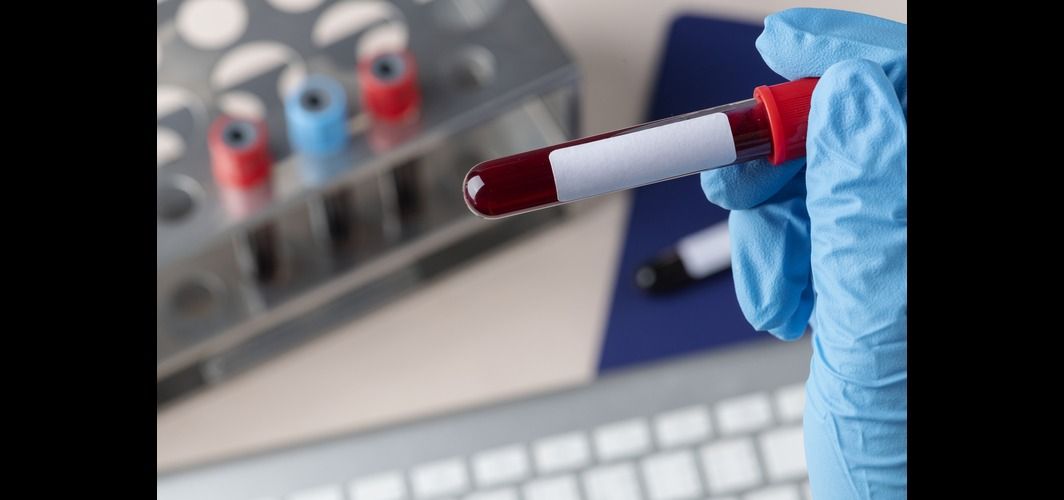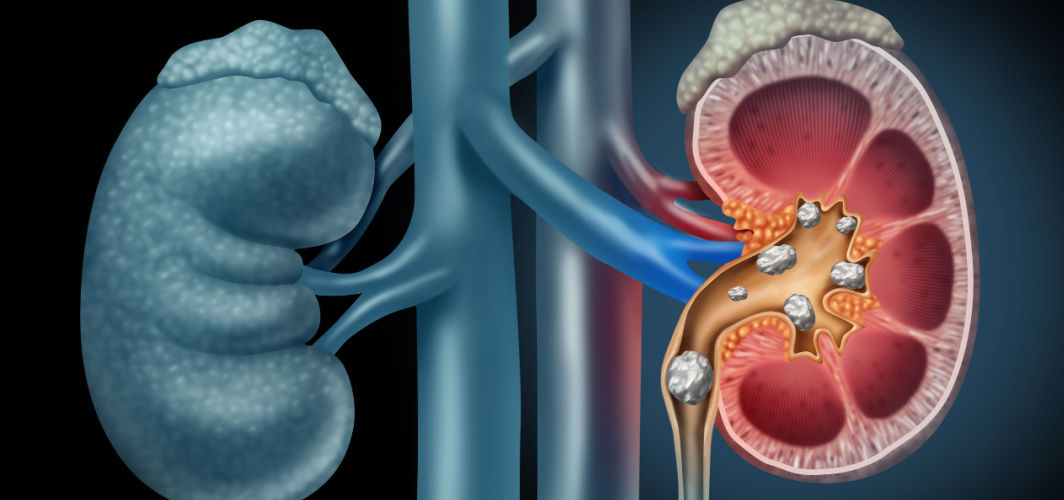General Health
Burning Stomach Pain or Frequent Bloating? An H. pylori Test Could Reveal a Hidden Infection
6 min read
By Apollo 24|7, Published on - 06 June 2025
Share this article
0
0 like
.jpg?tr=q-80)
Experiencing burning stomach pain or frequent bloating can be distressing and impact your daily life. While many causes may be behind these symptoms, one hidden culprit to consider is an infection with Helicobacter pylori (H. pylori). If you’ve been dealing with unexplained stomach discomfort, an H pylori test could provide crucial answers. This article explains what an H. pylori infection is, why testing is important, the types of tests available, and what you can expect throughout the diagnostic and treatment journey.
What is an H. pylori Infection?
Helicobacter pylori, commonly called H. pylori, is a type of bacteria that lives in the stomach lining. It is one of the most common bacterial infections worldwide, affecting around half the global population. Most people with H. pylori experience no symptoms, but in some, the bacteria can cause chronic inflammation and damage to the stomach and upper digestive tract.
Typical symptoms may include:
- Burning stomach pain
- Frequent bloating
- Nausea
- Burping
- Loss of appetite
Unintended weight loss
If left untreated, H. pylori infection can lead to complications such as:
- Gastritis (inflammation of the stomach lining)
- Peptic ulcers
- Stomach cancer (rare cases)
Understanding the presence of H. pylori is important because these symptoms can be easily mistaken for other digestive issues like indigestion or acid reflux. A proper diagnosis through an H pylori test can guide effective treatment and prevent serious health problems.
Why is an H. pylori Test Important?
- H. pylori testing is a vital tool for effectively managing unexplained digestive symptoms for the following reasons.
- Helps accurately diagnose the cause of persistent stomach pain and bloating.
H. pylori is a known cause of ulcers and gastritis; testing ensures the root cause is addressed rather than just managing symptoms.
Identifying the infection allows for targeted treatment to:
- Eradicate the bacteria
- Reduce stomach inflammation
- Promote healing of the stomach lining
- A proper diagnosis and treatment plan can significantly improve symptoms and prevent complications.
- Without testing, the infection may remain undiagnosed and untreated, leading to ongoing discomfort or serious health issues.
Have more questions?
Types of H. pylori Tests Available
Several tests can detect an H. pylori infection. Your doctor will choose the most appropriate based on your symptoms and medical history.
1. Breath Test (Urea Breath Test)
The urea breath test is a simple, non-invasive method. You swallow a special substance containing urea labelled with a harmless carbon isotope. If H. pylori bacteria are present, they break down the urea, releasing labelled carbon dioxide that is measured in your breath. This test is highly accurate and often used for both initial diagnosis and to confirm eradication after treatment.
2. Blood Antibody Test
This test checks for antibodies against H. pylori in your blood. It can indicate if you have been exposed to the bacteria. However, antibodies may remain after the infection has cleared, so this test is less reliable for confirming current infection or treatment success.
3. Stool Antigen Test
This test detects H. pylori proteins in a stool sample. It is non-invasive and useful for initial diagnosis and post-treatment confirmation. The stool antigen test has good accuracy and is convenient for many patients.
4. Endoscopic Biopsy
In some cases, particularly if there are severe symptoms or suspicion of ulcers, your doctor may recommend an endoscopy. A small camera is inserted through your mouth into your stomach, and tissue samples (biopsies) are taken to test for H. pylori directly. While more invasive, this method allows direct examination of the stomach lining.
Who Should Consider Getting Tested for H. pylori?
H pylori test is recommended if you experience:
- Persistent burning stomach pain
- Frequent bloating that does not improve with standard treatments
- Unexplained nausea or vomiting
- A history of peptic ulcers or gastritis
- Family history of stomach cancer or ulcers
- Unexplained weight loss or loss of appetite
- Frequent indigestion that disrupts daily life
If your symptoms persist despite lifestyle changes and over-the-counter medications, discussing an H pylori test with your doctor is a wise next step.
Preparing for the H. pylori Test
Preparation varies depending on the type of H pylori test:
- For the urea breath test and stool antigen test, you may be asked to avoid antibiotics, proton pump inhibitors (PPIs), or bismuth-containing medications for at least two weeks prior, as these can affect results.
- Fasting for a few hours before the breath test may be required.
- For blood tests, no special preparation is usually needed.
- If an endoscopy is scheduled, you may need to fast for several hours and arrange transportation after the procedure due to sedation.
- Always inform your healthcare provider about any medications you are taking, allergies, or medical conditions before testing.
What Happens During the H. pylori Testing Procedures?
Your healthcare provider may perform one or more tests, such as an endoscopy, stool, or blood test, to detect the presence of H. pylori. Each test is simple, safe, and usually completed in a short amount of time.
1. Blood Antibody Test
A blood sample is taken from your arm, similar to any routine blood test. It causes minimal discomfort.
2. Stool Antigen Test
You will receive instructions to collect a stool sample at home and return it to the lab for analysis.
3. Endoscopic Biopsy
Under sedation, a thin, flexible tube with a camera is passed down your throat into your stomach. Small tissue samples are taken for lab testing. The procedure usually takes 15-30 minutes.
Interpreting Your H. pylori Test Results
Once your test is complete, your healthcare provider will review the results with you. Understanding what the findings mean is essential for deciding the next steps in your care.
- Positive Result: Indicates the presence of H. pylori infection. Your doctor will recommend treatment to eradicate the bacteria.
- Negative Result: Suggests no current infection. If symptoms persist, further evaluation may be needed to identify other causes.
Sometimes, repeat testing is required, especially after treatment, to ensure the infection has been cleared.
Treatment Options if H. pylori is Detected
The primary treatment for H. pylori infection is a combination of antibiotics and acid-reducing medications. This approach helps eliminate the bacteria and allows the stomach lining to heal.
- Antibiotic Therapy: Usually involves two antibiotics taken simultaneously for 7-14 days to reduce the risk of resistance.
- Acid-Reducing Medications: Proton pump inhibitors (PPIs) reduce stomach acid, helping relieve symptoms and support healing.
- Lifestyle and Dietary Adjustments: Avoiding spicy foods, alcohol, caffeine, and smoking can help reduce irritation and improve treatment success.
Conclusion
If you are suffering from burning stomach pain or frequent bloating, an H pylori test could be a crucial step in identifying a hidden infection. Early detection and treatment of H. pylori infection can relieve uncomfortable symptoms, promote healing, and prevent serious complications like ulcers or stomach cancer. Discuss your symptoms with your healthcare provider to see if an H pylori test is right for you.
General Health
Frequently Asked Questions
Can H. pylori infection go away on its own?
Can H. pylori infection go away on its own?
Is the H pylori test painful?
Is the H pylori test painful?
How long does treatment take?
How long does treatment take?
Can H. pylori cause stomach cancer?
Can H. pylori cause stomach cancer?
Can I get re-infected with H. pylori after successful treatment?
Can I get re-infected with H. pylori after successful treatment?
Leave Comment
Recommended for you

General Health
Understanding Platelet (PLT) Normal Range and its Importance in Health
Learn about platelet normal range, causes of high and low counts, functions, diagnostic tests, and prevention tips.

General Health
7 Diet Tips to Prevent Kidney Stones
Learn about the best dietary strategies to prevent kidney stones. These tips will help you make lifestyle changes to reduce your risk of developing kidney stones.

General Health
5 Things You Should Never Do In Winter
The seasons each have their highs and lows. Given that winter has arrived and will likely stick around for a while, it's important to recognise that even seemingly harmless routines might pose serious risks during the season. Take a look at this list of basic habits.
Subscribe
Sign up for our free Health Library Daily Newsletter
Get doctor-approved health tips, news, and more.
Visual Stories

Plant-based Foods That Are a Great Source of Iron
Tap to continue exploring
Recommended for you

General Health
Understanding Platelet (PLT) Normal Range and its Importance in Health
Learn about platelet normal range, causes of high and low counts, functions, diagnostic tests, and prevention tips.

General Health
7 Diet Tips to Prevent Kidney Stones
Learn about the best dietary strategies to prevent kidney stones. These tips will help you make lifestyle changes to reduce your risk of developing kidney stones.

General Health
5 Things You Should Never Do In Winter
The seasons each have their highs and lows. Given that winter has arrived and will likely stick around for a while, it's important to recognise that even seemingly harmless routines might pose serious risks during the season. Take a look at this list of basic habits.